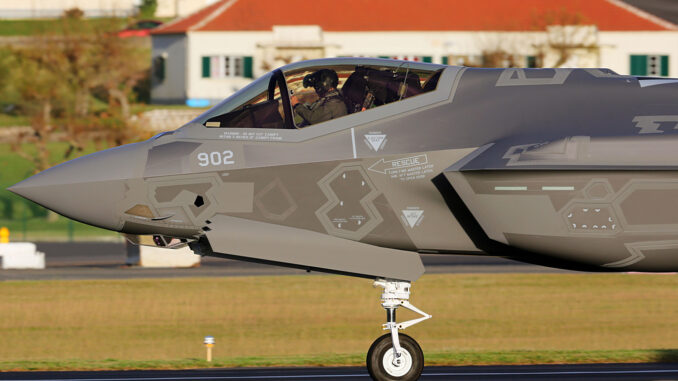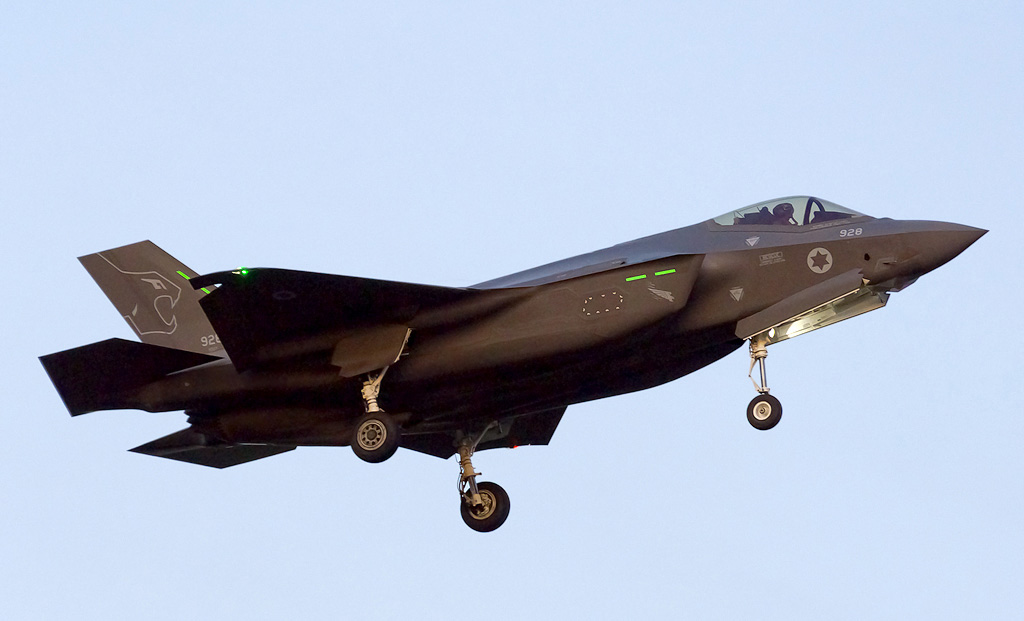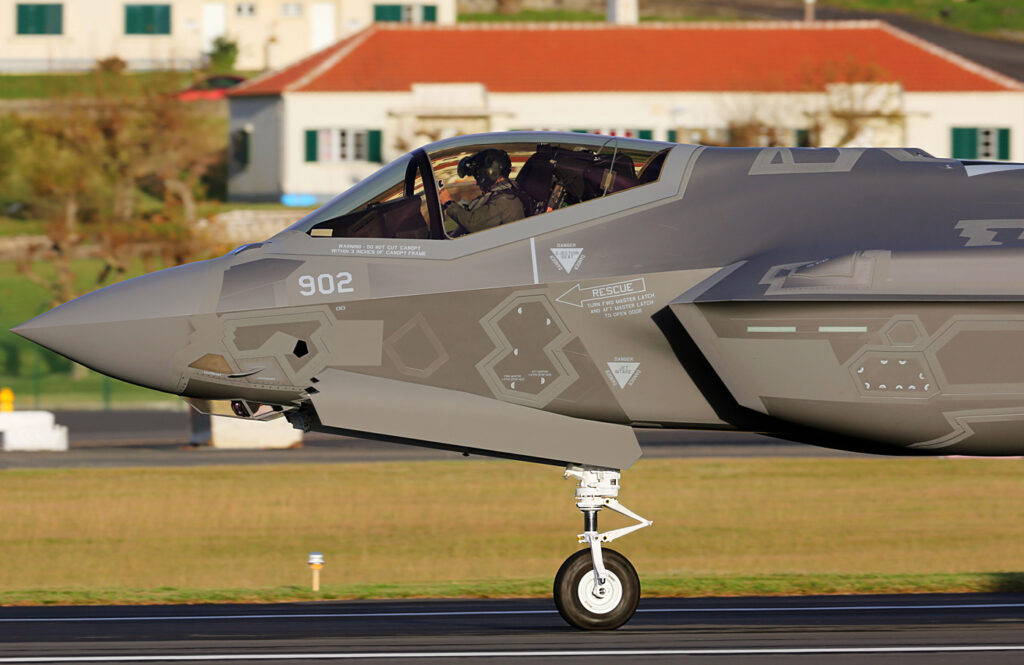
Israel signs an agreement to purchase a third F-35 squadron, strengthening its strategic alliance with the United States despite ongoing tensions in Gaza.
In brief
Israel has announced the acquisition of a third F-35 squadron, bringing its fleet to 75 units. The $3 billion acquisition, financed by US aid, will begin delivery in 2028. Despite tensions between the United States and Israel over the Gaza conflict, this transaction reinforces the strategic alliance between the two nations, demonstrating their mutual commitment to security.

Background to Israel’s F-35 acquisition
Despite political tensions between U.S. President Joe Biden and Israeli Prime Minister Benjamin Netanyahu, particularly due to the prolonged conflict between Israel and the Hamas group in the Gaza Strip, Israel has signed an agreement for the acquisition of a third squadron of F-35 fighters. The agreement, announced by the Israeli Ministry of Defense on June 4, includes the purchase of 25 additional aircraft, bringing Israel’s F-35 fleet to 75 units. The total cost of this acquisition is estimated at around $3 billion, financed entirely by US aid.
Strategic importance of the agreement
Israeli Defense Minister Yoav Galant stressed the importance of this agreement as a demonstration of the strength of the strategic alliance between the United States and Israel. According to Galant, this acquisition sends a strong message to all Israel’s adversaries in the region, reinforcing the country’s strategic position. By integrating these new F-35s, Israel maintains and extends its qualitative advantage in terms of air capabilities in the Middle East.
F-35 “Adir” specifications and deliveries
The F-35s acquired by Israel are designated F-35I “Adir”. These aircraft are modified to Israeli specifications to better meet the operational needs of the Israeli Air Force (IAF). The first batch of these aircraft will be delivered by Lockheed Martin from 2028, with a delivery rate of three to five aircraft per year.
Israeli industrial integration
The agreement includes significant participation by Israeli companies in the production of F-35s for third countries. Lockheed Martin and Pratt & Whitney, manufacturers of the aircraft and engines respectively, have committed to including Israeli-made components, boosting local industry and strengthening economic ties between the two nations.
Security and geopolitical implications
This acquisition plays a crucial role in maintaining Israel’s military superiority in the Middle East. As fifth-generation fighters, the F-35s offer stealth capabilities, advanced weapons systems and great agility, making them a major asset for complex military operations. Their integration into the IAF strengthens Israel’s ability to carry out surveillance, defense and attack operations with increased efficiency.
Economic and industrial consequences
The involvement of Israeli companies in the production of the F-35 for other countries represents a major economic opportunity. Not only does it support the local economy, it also strengthens the skills and technological capabilities of the Israeli defense industry. In addition, close industrial collaboration with aerospace giants such as Lockheed Martin fosters technology transfer and long-term strategic partnerships.

Delivery history and specific modifications
Israel was one of the first countries to receive the F-35, with the first units delivered in 2016. Unlike other user countries, Israel has been granted permission to modify these aircraft to meet its specific needs, including the integration of locally-developed electronic systems and weaponry. This flexibility enables the IAF to maintain technological and operational superiority, tailored to specific regional threats.
Risk-benefit analysis
The purchase of these new aircraft strengthens Israel’s deterrent capability, but also increases regional tensions, particularly with Iran and its allies. However, continued US support and improved Israeli defense capabilities are seen as stabilizing factors in a region marked by persistent conflict.
Future prospects for Israeli defense
With the arrival of the new F-35s, the IAF will be able to deploy more advanced fighter aircraft in various theaters of operation, thereby increasing its strategic flexibility. This acquisition is part of a broader strategy to modernize Israel’s armed forces and maintain their effectiveness in the face of evolving threats. Future defense cooperation with the United States is likely to continue to play a key role in strengthening Israel’s national security.
Israel’s acquisition of a third F-35 squadron represents a significant development in national defense, demonstrating the strength of the strategic alliance with the United States despite regional tensions. This initiative not only enhances Israel’s military capabilities, but also strengthens the economic and technological ties between the two nations.
War Wings Daily is an independant magazine.